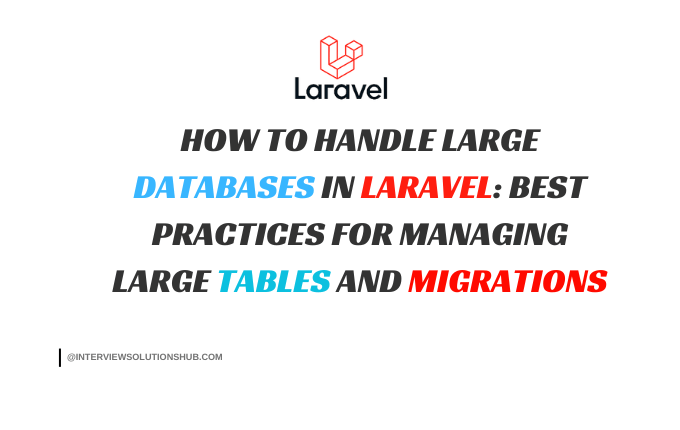Types of Sentence
Read More

.png)
In the constantly evolving world of technology, there's always something groundbreaking around the corner. And in recent years, the rise of artificial intelligence (AI) has ushered in a new era of possibilities. Among these possibilities is the emergence of the first AI software engineer, a game-changer with the potential to revolutionize the way we develop and optimize software.
Imagine a computer program that can not only analyze and understand code but also learn from it, improving its own abilities over time. This is exactly what the first AI software engineer brings to the table. With its advanced algorithms and machine learning capabilities, it can automate a wide range of software development tasks, from debugging and testing to optimization and refactoring. This not only boosts productivity but also enhances the overall quality and efficiency of software engineering processes.
The rise of the first AI software engineer also raises important questions about the future of traditional software engineering roles. Will human software engineers be replaced by their AI counterparts? Or will the two coexist, each bringing unique strengths to the table? Only time will tell. But one thing is for certain – the era of AI software engineering has arrived, and it's here to stay.
An AI software engineer is a specialized professional who leverages artificial intelligence to develop, optimize, and maintain software systems. Unlike traditional software engineers, who rely on manual coding and debugging, AI software engineers work with algorithms and machine learning models to automate various aspects of the software development lifecycle. These professionals are skilled in areas such as natural language processing, deep learning, and data analysis, allowing them to build intelligent systems that learn from data and improve their performance over time.
One of the key defining characteristics of an AI software engineer is the ability to create self-learning algorithms. These algorithms can analyze large amounts of data, identify patterns, and make predictions or decisions based on the insights gained. This enables the AI software engineer to automate tasks that would have previously required manual intervention, such as bug detection, code optimization, and software testing. By automating these processes, AI software engineers can significantly speed up software development cycles and improve the overall quality of the final product.
However, it's important to note that AI software engineers do not replace traditional software engineers entirely. While AI can automate certain tasks, human software engineers still play a crucial role in designing and implementing complex software systems. AI software engineers and human software engineers can work together synergistically, with AI automating repetitive tasks and human engineers focusing on more creative and complex problem-solving.
Becoming an AI software engineer requires a unique skill set combining both technical and analytical abilities. Here are some essential skills to develop in order to succeed in this field:
Programming: Proficiency in programming languages such as Python, Java, or C++ is crucial for AI software engineers. They need to be able to write code to implement and train machine learning models, as well as integrate AI algorithms into existing software systems.
Machine Learning: A solid understanding of machine learning concepts and algorithms is essential. AI software engineers should be familiar with techniques such as supervised learning, unsupervised learning, and reinforcement learning. They should also be able to select and fine-tune appropriate algorithms based on the requirements of the software project.
Data Analysis: AI software engineers work with large datasets, so strong data analysis skills are necessary. They should be able to preprocess and clean data, perform exploratory data analysis, and extract meaningful insights from the data to inform the development of AI models.
Natural Language Processing: Natural language processing (NLP) is a subfield of AI that focuses on understanding and processing human language. AI software engineers should have a good grasp of NLP techniques to develop applications such as chatbots, language translation systems, and sentiment analysis tools.
Problem-Solving: AI software engineers need to be adept problem solvers. They should be able to break down complex problems into smaller, manageable components and devise effective solutions using AI techniques. Strong analytical and critical thinking skills are essential for identifying the best approaches to tackle a given problem.
Domain Knowledge: Having domain knowledge in the specific industry or field where AI software engineering is applied can be advantageous. Understanding the nuances and challenges of a particular domain allows AI software engineers to develop more effective and tailored solutions.
In addition to these technical skills, AI software engineers should also possess strong communication and collaboration skills. They often work in interdisciplinary teams, collaborating with data scientists, software developers, and domain experts. Effective communication ensures that the AI software engineer can understand the requirements of a project and effectively convey the capabilities and limitations of AI to non-technical stakeholders.
To become an AI software engineer, a solid educational foundation is important. While there is no specific degree required to enter the field, a bachelor's or master's degree in computer science, artificial intelligence, or a related field is highly beneficial. These programs provide a comprehensive understanding of computer science fundamentals, programming languages, algorithms, and data structures – all of which are crucial for AI software engineering.
Additionally, pursuing specialized courses or certifications in AI and machine learning can further enhance one's knowledge and skills. There are various online platforms, such as Coursera and edX, that offer courses specifically focused on AI, machine learning, and deep learning. These courses cover topics ranging from basic machine learning concepts to advanced algorithms and model deployment.
Another valuable learning resource is participating in AI-related projects, either through internships or open-source contributions. Practical experience working on real-world AI projects helps bridge the gap between theoretical knowledge and practical implementation.
Continuously staying updated with the latest advancements in AI and software engineering is also essential. Following influential researchers and practitioners in the field, attending conferences and workshops, and reading research papers are effective ways to stay abreast of the latest trends and developments.
The demand for AI software engineers is rapidly growing, driven by the increasing adoption of AI technologies across various industries. As companies strive to enhance their products and services with AI capabilities, the need for skilled professionals who can develop and deploy AI solutions continues to rise.
AI software engineers can find employment opportunities in a wide range of industries, including healthcare, finance, e-commerce, automotive, and more. They can work for tech giants, startups, research institutions, or even as independent consultants or freelancers.
Some common job titles in the field of AI software engineering include:
These roles may vary in terms of specific responsibilities, but they all share a common focus on leveraging AI technologies to solve complex problems and enhance software systems.
As technology continues to advance, the demand for AI software engineers is expected to grow even further. According to a report by Gartner, AI will create 2.3 million jobs by 2025. This indicates a significant opportunity for individuals interested in pursuing a career in AI software engineering.
While the rise of AI software engineering brings immense potential, it also presents challenges and ethical considerations that need to be addressed. Here are some key challenges in the field:
Data Bias: AI algorithms are trained on data, and if the data used for training is biased, it can lead to biased or unfair outcomes. AI software engineers need to be aware of this challenge and take steps to mitigate bias in their models, such as carefully selecting training data and regularly evaluating model performance.
Transparency and Explainability: AI algorithms can sometimes be considered "black boxes" – they provide accurate results, but it's not always clear how those results were obtained. This lack of transparency raises concerns about accountability and trust. AI software engineers should strive to develop models that are explainable, allowing users to understand the reasoning behind the decisions made by the AI system.
Privacy and Security: AI software engineers often work with sensitive data, such as personal information or financial records. Protecting this data from unauthorized access or misuse is of utmost importance. AI systems should be designed with robust security measures and privacy safeguards to ensure the integrity and confidentiality of the data.
Ethics and Fairness: AI systems should be designed and deployed in a way that upholds ethical principles and fairness. AI software engineers should consider the potential societal impact of their work and ensure that their models do not perpetuate discrimination or harm. They should be mindful of the ethical implications of AI and make informed decisions throughout the development process.
Addressing these challenges requires collaboration between AI software engineers, domain experts, policymakers, and society as a whole. It is important to have ongoing discussions and debates about the ethical implications of AI and to continuously refine and improve the guidelines and regulations governing its use.
The impact of AI software engineering on industries is far-reaching and transformative. Here are some examples of how AI is revolutionizing various sectors:
Healthcare: AI software engineers are developing systems that can analyze medical images, such as X-rays and MRI scans, to detect and diagnose diseases. AI-powered chatbots are also being used to provide basic medical advice and triage patients. This improves the accuracy and efficiency of healthcare delivery, leading to better patient outcomes.
Finance: AI software engineering is enabling the development of intelligent trading systems that can analyze vast amounts of financial data and make data-driven investment decisions. AI algorithms are also used for fraud detection and prevention, reducing financial losses due to fraudulent activities.
E-commerce: AI-powered recommendation systems are becoming increasingly prevalent in e-commerce platforms. These systems analyze customer preferences and behavior to provide personalized product recommendations, enhancing the shopping experience and increasing sales.
Automotive: AI software engineering plays a crucial role in the development of self-driving cars. AI algorithms enable vehicles to perceive their surroundings, make decisions, and navigate safely on the roads. This technology has the potential to revolutionize transportation and improve road safety.
Manufacturing: AI software engineers are using machine learning algorithms to optimize manufacturing processes, improve quality control, and reduce production costs. AI-powered predictive maintenance systems can also anticipate equipment failures, minimizing downtime and improving operational efficiency.
The impact of AI software engineering is not limited to these industries alone. Virtually every sector can benefit from AI technologies, whether it's in customer service, logistics, energy, or entertainment. The possibilities are endless, and as AI continues to advance, its impact will only become more profound.
AI software engineers rely on a variety of tools and technologies to develop and deploy AI solutions. Here are some commonly used tools and technologies in the field:
Python: Python is a popular programming language in the field of AI and machine learning. It offers a wide range of libraries and frameworks, such as TensorFlow, PyTorch, and scikit-learn, which provide the necessary tools for developing and training AI models.
TensorFlow: TensorFlow is an open-source machine learning framework developed by Google. It provides a comprehensive ecosystem for building and deploying AI models, with support for various neural network architectures and deployment platforms.
PyTorch: PyTorch is another popular open-source machine learning framework that is widely used by AI software engineers. It offers a dynamic computational graph, making it flexible and intuitive for model development. PyTorch is known for its ease of use and extensive community support.
Keras: Keras is a high-level neural networks API written in Python. It is built on top of TensorFlow and provides a user-friendly interface for building and training deep learning models. Keras abstracts away low-level details, allowing AI software engineers to focus on model architecture and experimentation.
Jupyter Notebook: Jupyter Notebook is an interactive computing environment that allows AI software engineers to write, run, and visualize code in a browser-based interface. It is particularly useful for prototyping and experimenting with AI models, as it provides an interactive and collaborative environment.
Docker: Docker is a containerization platform that allows AI software engineers to package their AI models and dependencies into lightweight and portable containers. This makes it easier to deploy AI models across different environments and ensures consistency in the execution of the models.
Cloud Platforms: Cloud platforms, such as Amazon Web Services (AWS), Google Cloud Platform (GCP), and Microsoft Azure, provide AI software engineers with the infrastructure and services needed to scale and deploy AI models. These platforms offer pre-built AI services, such as image recognition and natural language processing, which can be easily integrated into software systems.
These are just a few examples of the tools and technologies used by AI software engineers. The field is evolving rapidly, and new tools and frameworks are constantly being developed to improve the efficiency and effectiveness of AI development.
If you're interested in learning AI software engineering, there are plenty of resources available to help you get started. Here are some recommendations:
Online Courses: Platforms like Coursera, edX, and Udacity offer a wide range of AI and machine learning courses. Some popular courses include "Machine Learning" by Andrew Ng, "Deep Learning Specialization" by deeplearning.ai, and "Applied Data Science with Python" by the University of Michigan.
Books: There are several books that provide a comprehensive introduction to AI and machine learning. Some recommended titles include "Hands-On Machine Learning with Scikit-Learn, Keras, and TensorFlow" by Aurélien Géron, "Deep Learning" by Ian Goodfellow, Yoshua Bengio, and Aaron Courville, and "Artificial Intelligence: A Modern Approach" by Stuart Russell and Peter Norvig.
Open-Source Projects: Contributing to open-source projects related to AI and machine learning is a great way to gain practical experience and learn from experienced developers. GitHub is a popular platform for discovering and contributing to open-source projects.
Online Communities: Joining online communities, such as forums, Slack channels, or Reddit communities, allows you to connect with fellow AI enthusiasts and professionals. These communities provide a platform for asking questions, sharing ideas, and learning from others.
AI Research Papers: Reading research papers in the field of AI and machine learning is a great way to stay updated with the latest advancements. Platforms like arXiv and Google Scholar provide access to a vast collection of research papers.
Hackathons and Competitions: Participating in AI hackathons and competitions allows you to
Recent posts form our Blog
.png)

.png)

![[SOLVED] CORS ISSUE WITH REACT AND LARAVEL 10 API](https://www.interviewsolutionshub.com/storage/blogs/images/1726047861cors error(8).png)

naked images
People find it much more appealing to view dressed systems than covered ones.
And a portion of the appeal is the risk that comes with being shirtless and feeling a little embarrassed or exposed
during sex. When both functions are in the shield,
it increases the friendship of the sexual. When their partner is
resilient, dominance is mainly appealing to some guys. And let's not forget about
the shirtless movie: they definitely go all out
when it comes to showing off everything, focusing on infiltration, and on privates. http://www.qizegypt.gov.eg/Home/Language/en?url=https%3A%2F%2Fadsintro.com%2Findex.php%3Fpage%3Duser%26action%3Dpub_profile%26id%3D169195